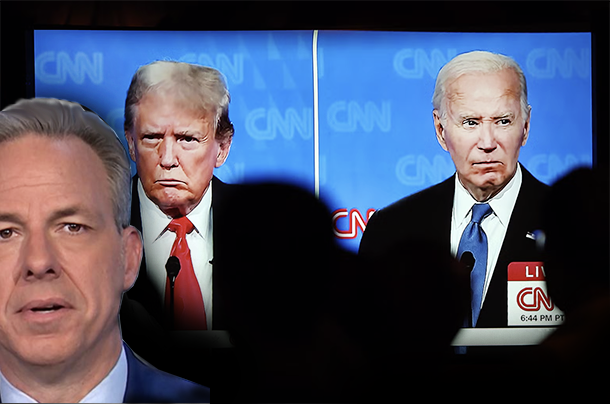from 21st Century Wire:

The Press United reports…
Joe Biden’s performance at the CNN presidential debate against Donald Trump has raised concerns with US allies – particularly within NATO and Europe.
Those concerns, to be clear, are not about whether or not Biden is fit to make decisions. They are not worried that he will implement dangerous policies or take dramatic actions internationally – always a factor when talking about the person in charge of the world’s most powerful armed forces, a nuclear arsenal and largest economy.
TRUTH LIVES on at https://sgtreport.tv/
The common view among US allies is that Biden is a sensible man who surrounds himself with sensible people and whatever happens, they will continue to make rational, reasonable decisions.
Nor is the concern that Biden’s stumbling, at times incomprehensible, performance has ensured a second Trump term. The prospect of a Trump return is a concern, but it has already been baked into allied thinking.
Europe, in particular, has never really moved on from Trump 1.0 and has held the view since 2020: that if it could happen once, it could happen again. That has been at the heart of European strategic thinking since Trump took office in 2016 and has continued through Biden’s presidency.
The concerns that America’s allies have are that the most powerful country on earth cannot provide the one thing they most want: stability.
Removing a candidate this late in the electoral cycle, diplomats fear, could undermine the whole process. It could allow adversaries like China and Russia to lash out at the US democratic system, making it look weak in comparison to their autocracies where strongmen grip power tight.
This may sound trivial, but diplomacy at this level is often seen in zero-sum terms: something bad or embarrassing for the West, particularly the mighty US, is good for its enemies.
These small shows of supposed weakness create openings for adversaries to spread propaganda, sow divisions in the US and the West itself through disinformation.
These risks would be bad enough in removing a candidate, but imagine if these conversations are taking place once Biden had secured a second term. Constant speculation about his ability to govern at home and abroad might be unfounded at a policy level, but it would doubtless create division, distrust and panic throughout his second term.
What might that materially mean? Would Biden be able to push things like aid for Ukraine through the House? Would he have the political capital to take potentially unpopular action in the Middle East or Indo-Pacific if those regions further destabilise? And would a question mark over the White House’s power embolden America’s global adversaries in to act more aggressively in their own backyards? Meeting all of these challenges effectively requires stability.
That brings us back to Thursday night. The world saw an old man struggling to speak eloquently or coherently. Whether you are a supporter or opponent, that performance raises legitimate questions about whether or not he is simply too old for the job he wants to keep doing.
Read More @ 21stCenturyWire.com



